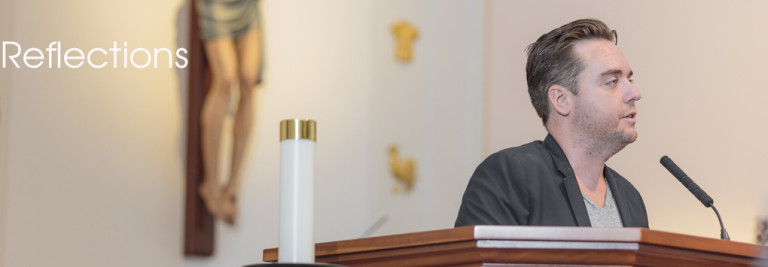“How many ages hence
Shall this our lofty scene be acted over
In states unborn and accents yet unknown!”
Julius Caesar, 3.1.113-4
This weekend, in a twist that could be found in one of his own plays, William Shakespeare is said to have died over fifty years later, on the same day he was born. Whether this is true (probably not) is besides the point. The world celebrates the 400th anniversary of the death of the greatest playwright and, aside from the Hebrew Bible and Gospel writers, probably the greatest writer that has ever lived.
I first encountered the Bard in middle school. In sixth grade there was a brief attempt at Romeo and Juliet and in eighth grade I was caught writing “u suck” on a wooden bookshelf with liquid paper. (Not very imaginative I know.) The punishment was a book report and three days of detention. I had a choice: To Kill A Mocking Bird or Julius Caesar. I chose Julius Caesar because it was thinner and had a bloody knife on the cover. I would learn to love Scout and Atticus’ story a year or so later.
Much like St. Augustine, I had two conversions: an intellectual one and a spiritual one. Reading Shakespeare was difficult, it required attention, something I was in desperate need of, but the language was mesmerizing and the revelations I felt when I found out what was happening were so exciting. I had the added benefit of not having Internet access, so finding a “plain language” summary was impossible, something I admittedly rely on now. I still have no idea what is really happening in The Winter’s Tale.
As I look back, I realize that what I was experiencing was not only a cultural awakening, but my spiritual conversion would not have happened without Hamlet, Falstaff, Rosalind and Lear. My call to service was impossible without the experiential learning of my father taking me to the MoMA on my birthdays to stand before Cézanne, Manet, Monet and Van Gogh. What I learned in those museums or in so-called “low art” comic books, blockbuster movies and (some) 90’s television all helped realize that the human condition is often one of pain and I should give to the world instead of just take from it. Need humbling? Stand in front of a photograph from Dorothea Lange or watch Martha Graham dance or a film by Terrence Malick and you’ll quickly realize it isn’t about you.
As Saint Pope John Paul II writes in his Easter Address of 1998 entitled Letter to Artists, “True art has a close affinity with the world of faith, so that, even in situations where culture and the Church are far apart, art remains a kind of bridge to religious experience.” The Holy Father concludes, “the Church needs art” (Letter, 4). Art was the bridge to my own city of God. I would argue it made me truly a self-aware human and, realizing my humanity, I realized I needed redemption, which led me to God. I am the son of a painter, the brother of a poet, a musician and a cook, but I’m also the apostle of the immortal mortals, secular saints found in the classics that taught me the language that I would eventually use to express my love for God.
My academic mentor Msgr. Richard Liddy says, “we learn by expression” how to express ourselves, properly and sincerely. He is so right! Whether it is the cave paintings of Lascaux or carvings like the Venus of Willendorf, artful expression, creating something outside the needs of our own survival is what makes us human; the ability to express ourselves to our fellow men and women creates empathy which is at the heart of being made in “the image and likeness of God.” So, this weekend there’s a lot to do, but maybe we can gather the family together and run to the movies, crack open a book or turn on the TV. It won’t be a waste as long as we learn something. Have a blessed week. Huzzah!
I’ll be seeing you,
Elliot



